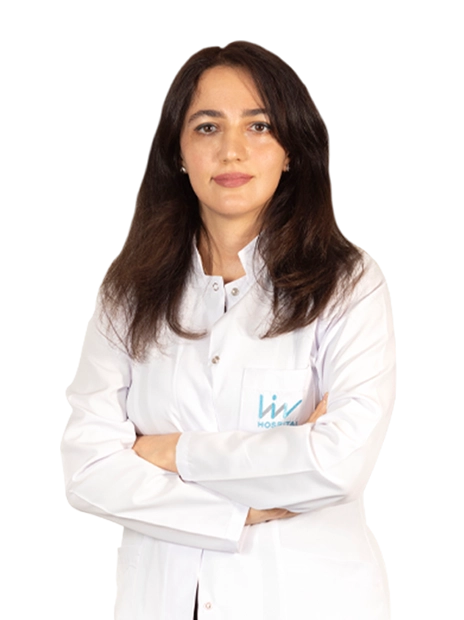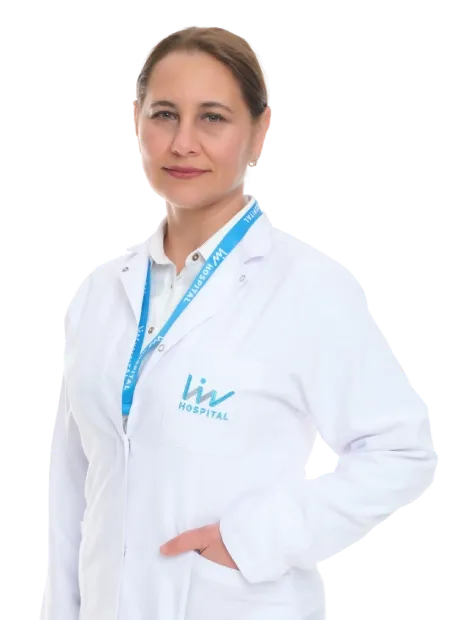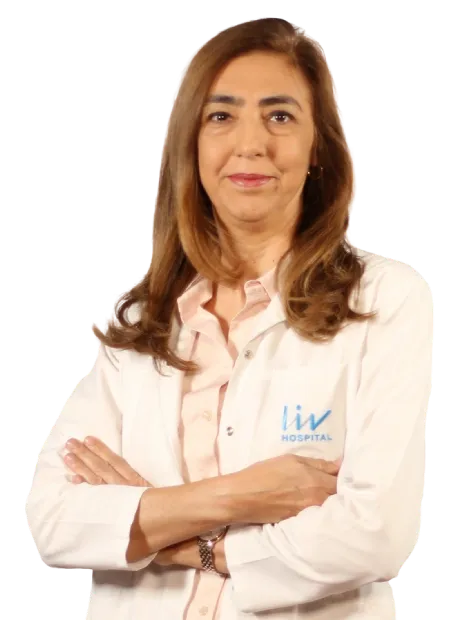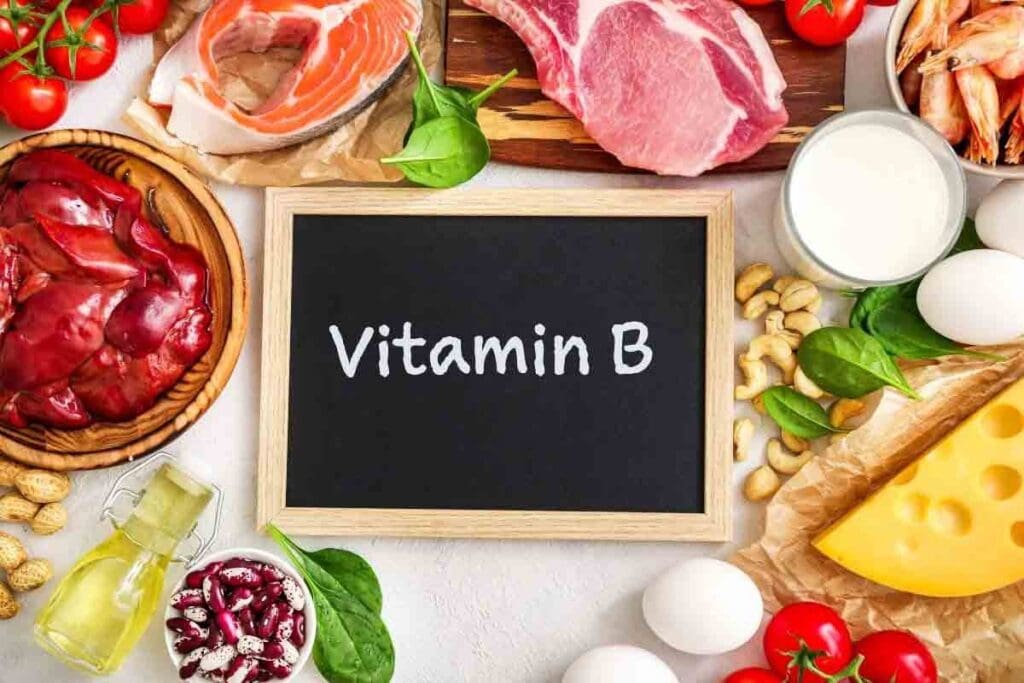
At Liv Hospital, we stress the need for a balanced diet for good health. B vitamins are key for energy, brain function, and cell growth. The B complex has eight vitamins, with B6, B12, and folic acid being very important for our health.
It’s important to know where to find these vitamins and their benefits. B vitamins help our bodies in many ways, but can you have too much folic acid? Yes, excess intake can be harmful.
Key Takeaways
- B vitamins are vital for energy and brain health.
- B6, B12, and folic acid are key to health.
- Eating a variety of B vitamin-rich foods is important.
- It’s important to eat in moderation to avoid too little or too much.
- Liv Hospital helps you find better health with evidence-based care.
The Essential Role of B Vitamins in Your Health
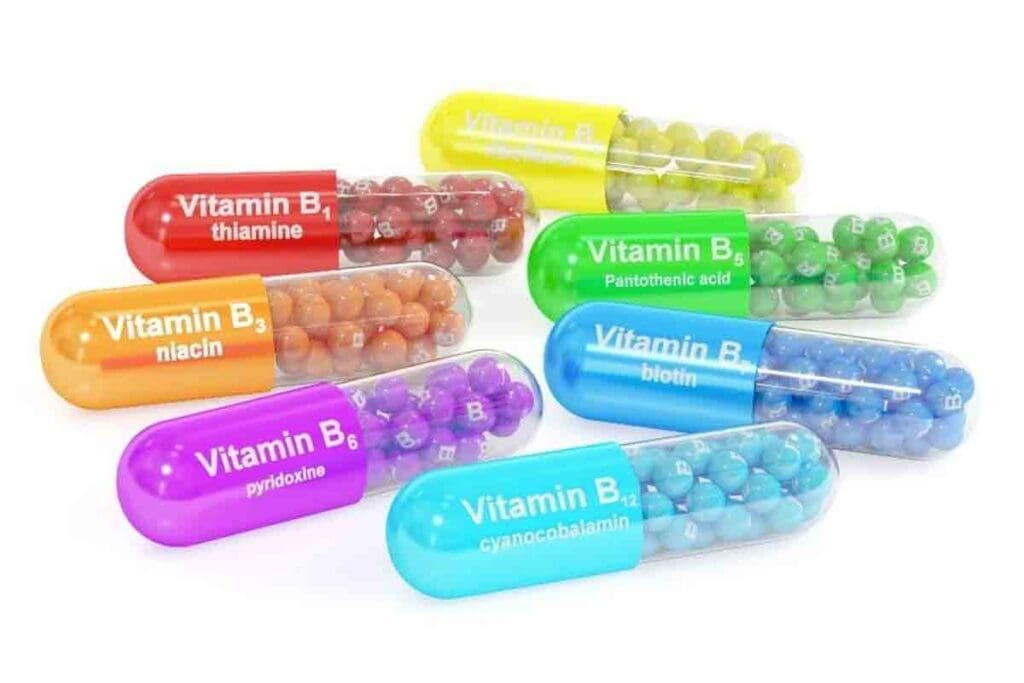
B vitamins are key for our body’s functions, like energy metabolism and brain health. They help in many processes that keep us healthy.
We need B vitamins to turn food into energy, keep our nerves healthy, and support our heart. Each B vitamin has its own role, showing how important they are in our diet.
How B Vitamins Support Energy Metabolism
B12 and B6 are vital for making energy. They help break down fats, carbs, and proteins, so our bodies can use food energy.
B vitamins keep us physically and mentally strong. Without enough, we might feel tired and weak.
B Vitamins for Brain Function and Cell Growth
B vitamins are key for brain health and growth. Folic acid is important for preventing birth defects and keeping our brains sharp.
They also help make DNA and RNA, which are vital for cell growth. This supports healthy skin, hair, eyes, and a strong immune system.
The Difference Between B6, B12, and Folic Acid
B6, B12, and folic acid are all B vitamins, but do different things. Vitamin B12 is important for nerves and making red blood cells. B6 helps with many body functions and supports the brain. Folic acid is key to DNA and is very important during pregnancy.
Knowing what each vitamin does helps us make better diet choices. This ensures we get the most from the benefits of B6, B12, and folic acid.
Top Animal-Based Foods Rich in Vitamin B12
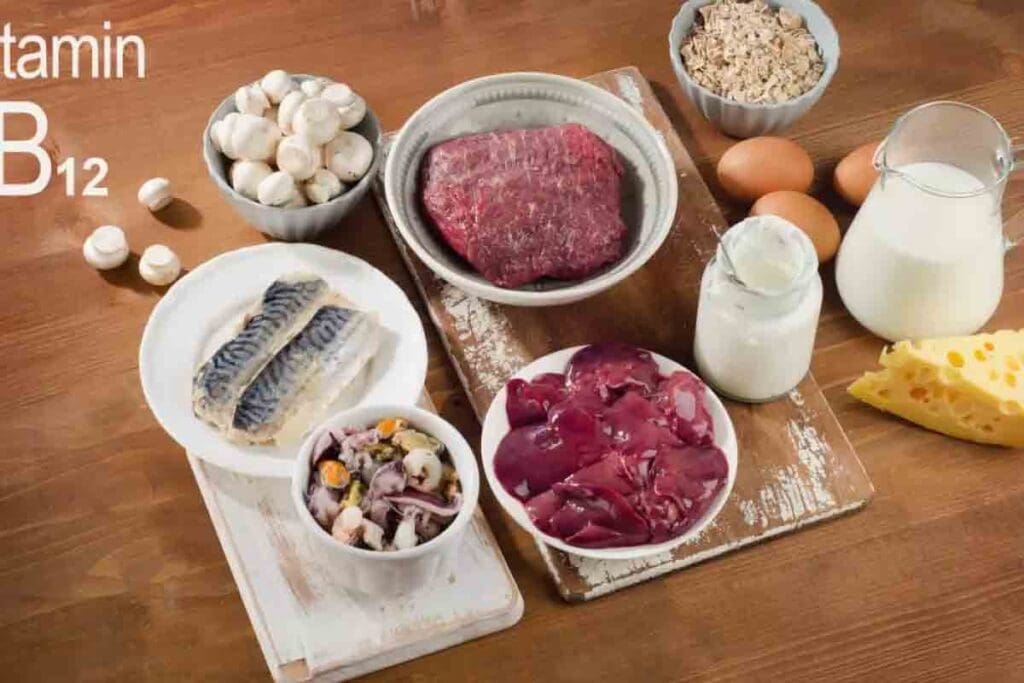
To keep Vitamin B12 levels up, eating certain animal-based foods is important. Vitamin B12 helps make red blood cells and keeps nerves working right. These foods are the main sources of Vitamin B12, so they’re key for getting enough.
Clams and Oysters: Seafood B12 Champions
Clams and oysters are top Vitamin B12 sources. They’re tasty and full of nutrients. Just one serving can give you a big part of the daily Vitamin B12 you need. Clams, for example, have a lot of Vitamin B12.
Beef Liver and Organ Meats
Beef liver and other organ meats are exceptional sources of Vitamin B12. Organ meats are very nutrient-dense, including Vitamin B12. Eating beef liver can really help your Vitamin B12 levels, which is good for your health.
Salmon, Trout, and Tuna: Fish Sources of B12
Fatty fish like salmon, trout, and tuna are full of omega-3s and Vitamin B12. They’re easy to add to a healthy diet. They help your heart and give you Vitamin B12, too.
Dairy Products and Eggs: Everyday B12 Sources
Dairy and eggs are foods you can eat every day to get Vitamin B12. Milk, cheese, and eggs are common and give Vitamin B12. They’re great for people who don’t eat other foods with Vitamin B12.
Plant-Based and Fortified Sources of Vitamin B12
For those on a plant-based diet, finding vitamin B12 is key. It helps with energy, nerve health, and making red blood cells. While animal products have B12, there are plant-based options too.
Nutritional Yeast: A Vegan B12 Option
Nutritional yeast is a favorite vegan ingredient. It’s packed with vitamin B12, making it great for plant-based diets. This yeast is grown on sugarcane or beet molasses and then dried.
It’s not just B12; it also has other B vitamins, protein, and fiber. Sprinkle it on popcorn, use it as a veggie seasoning, or blend it into smoothies. Some brands add extra B12, so always check the label.
Fortified Plant Milks and Non-Dairy Products
Plant milks and non-dairy items are often fortified with B12. This includes almond milk, soy milk, oat milk, and vegan yogurts. Look for brands that say they add vitamin B12.
These milks are great on their own, in cereal, or in recipes. They’re an easy way to get more B12 without changing your diet much.
Fortified Breakfast Cereals and Breads
Many cereals and breads are fortified with B12 and other nutrients. They’re a good choice for a plant-based diet. They offer a quick way to get enough B12. Always check the label to see if they’re fortified.
Choose cereals and breads that are low in sugar and made from whole grains. This way, you get more nutritional benefits.
B12 Supplementation for Plant-Based Diets
Supplements can help if you’re on a strict vegan diet. They come in tablets, capsules, and drops. They ensure you get enough B12.
Before starting supplements, talk to a healthcare provider. They can help figure out what’s best for you based on your health and diet.
Foods High in Vitamin B6
Vitamin B6 is key to a healthy diet. It supports many body functions. Eating foods rich in vitamin B6 is important for good health.
Chicken and Turkey: Poultry B6 Sources
Chicken and turkey are great sources of vitamin B6. A 3-ounce cooked serving gives a lot of what you need daily.
Chickpeas, Potatoes, and Other Plant Sources
Chickpeas and potatoes are good for plant-based diets. Beans and some veggies also add to your vitamin B6.
Bananas and Avocados: Fruit Sources of B6
Bananas and avocados are tasty and full of vitamin B6. Adding them to your meals helps meet your B6 needs.
Pistachios and Sunflower Seeds: Nut and Seed Options
Pistachios and sunflower seeds are rich in vitamin B6. They’re a healthy choice for a snack.
Here’s a table to show vitamin B6 in different foods:
| Food Item | Serving Size | Vitamin B6 Content (mg) | % Daily Value |
| Chicken Breast | 3 oz | 0.5 | 25% |
| Turkey Breast | 3 oz | 0.4 | 20% |
| Chickpeas | 1 cup | 1.1 | 55% |
| Banana | 1 medium | 0.4 | 20% |
| Pistachios | 1 oz | 0.5 | 25% |
Rich Sources of Folic Acid
Folic acid, or vitamin B9, is a key nutrient found in certain foods. It helps with DNA repair, cell division, and growth. Pregnant women need it to prevent birth defects.
Spinach, Kale, and Other Leafy Greens
Leafy green veggies are packed with folic acid. Spinach and kale are great for salads or smoothies. Collard and mustard greens are also good sources.
Lentils, Black Beans, and Chickpeas
Legumes are full of folic acid. Lentils, black beans, and chickpeas are also high in protein and fiber. They’re great for meals.
Asparagus and Broccoli: Vegetable Folate Sources
Some veggies are also good for folic acid. Asparagus and broccoli stand out. They can be steamed, roasted, or sautéed.
Citrus Fruits and Fortified Grains
Some fruits and grains also have folic acid. Citrus fruits like oranges and grapefruits are good. Many breakfast cereals and bread are fortified, too. For more info, check out Healthline’s article on foods high in.
| Food | Folate Content per Serving |
| Spinach (cooked) | 131 mcg per 1/2 cup |
| Lentils (cooked) | 179 mcg per 1/2 cup |
| Asparagus (cooked) | 89 mcg per 1/2 cup |
| Orange | 40 mcg per medium fruit |
| Fortified Breakfast Cereal | 400 mcg per serving |
Superfoods Containing Multiple B Vitamins
We can boost our health by eating superfoods rich in B vitamins. These foods are full of vitamins that help our energy, brain, and health.
Eggs: Complete B Vitamin Profiles
Eggs are a superfood with all B vitamins. They have lots of B12, B2, and B5. Eating eggs helps our energy and keeps our skin, hair, and nails healthy. You can add eggs to breakfast, salads, or sandwiches.
Liver: Nature’s B Vitamin Supplement
Liver, like beef liver, is full of B vitamins like B12, folate, and B6. It’s a top source of these vitamins. You can eat liver in dishes or take it as a supplement with a doctor’s advice.
Salmon: Rich in B12, B6, and Other B Vitamins
Salmon is great for omega-3s and B vitamins like B12 and B6. These vitamins are good for our heart, brain, and blood. Eating salmon a few times a week helps meet your B vitamin needs.
Legumes: B6 and Folate Powerhouses
Legumes like lentils, chickpeas, and black beans are full of protein, fiber, B6, and folate. These vitamins help our energy, nerves, and prevent birth defects. Adding legumes to meals is tasty and healthy.
Eating these superfoods helps you get all the B vitamins you need. They’re great for energy, brain health, and a balanced diet. These foods are key to staying healthy.
Recommended Daily Intake of B Vitamins
Knowing how many B vitamins you should take daily is key to staying healthy. B vitamins help with energy, nerve function, and heart health. The amount you need varies by vitamin type and can change with age, pregnancy, and health.
How Much Vitamin B12 Should You Take a Day
Adults need 2.4 micrograms (mcg) of Vitamin B12 each day. This vitamin is vital for making red blood cells and keeping nerves healthy. Vitamin B12 deficiency can cause anemia and nerve problems. Vegans or those on special diets might need supplements or fortified foods for B12.
Recommended Intake for B6 and Folic Acid
Adults should get 1.3 milligrams (mg) of Vitamin B6 daily. B6 helps the brain and makes red blood cells. Folic Acid, or Vitamin B9, should be 400 micrograms (mcg) for adults. It’s key for fetal health during pregnancy. Getting enough of these vitamins is important for health and avoiding deficiencies.
Special Considerations for Pregnancy and Aging
Pregnant women need 600-800 mcg of Folic Acid daily to prevent birth defects. Older adults might need more Vitamin B12 because their bodies absorb it less. Always talk to a healthcare provider for advice tailored to you.
Signs of B Vitamin Deficiency
B vitamin deficiencies can show up as fatigue, weakness, and nerve issues. Spotting these signs early is important. Look out for pale skin, sore tongue, and stomach problems. If you notice these, see a doctor for help.
Can You Have Too Much Folic Acid? Understanding B Vitamin Toxicity
It’s important to know the dangers of too much folic acid for our health. Folic acid is key to many body functions. But too much can cause health problems.
When we take B vitamin supplements, like folic acid, we must be careful. Too much can harm us. Knowing these risks helps us make better health choices.
Risks of Excessive Supplemental Folic Acid
Too much folic acid can harm our health. Some risks include:
- It can hide a vitamin B12 deficiency, which can damage our nerves if not treated.
- It might interact badly with some medicines, like those for seizures or cancer treatment.
- There’s a chance it could increase the risk of some cancers, but more research is needed.
Adults should stick to the daily recommended amount of folic acid, which is 400 micrograms.
How Folic Acid Can Mask B12 Deficiency
Folic acid can hide signs of a vitamin B12 deficiency. This can make it hard to find out if we have a B12 problem. A B12 deficiency can cause nerve damage, anemia, and other issues.
If you’re taking folic acid, it’s important to also check your B12 levels.
Potential Nerve Damage from B6 Overconsumption
Vitamin B6 can also cause problems if we take too much. High amounts of B6 can damage our nerves. This can lead to:
- Numbness and tingling in our hands and feet.
- Loss of coordination and balance.
- Pain or burning in our hands and feet.
If you’re feeling these symptoms, talk to your doctor. They can help adjust your supplements.
Safe Upper Limits for B Vitamin Supplements
To avoid B vitamin overdose risks, it’s key to follow safe upper limits. The safe limit for folic acid is 1,000 micrograms a day. For vitamin B6, it’s 100 milligrams a day.
Before starting any supplements, always talk to a healthcare professional. This is even more important if you’re thinking about taking high doses or have health issues.
Conclusion: Balancing Your B Vitamin Intake for Optimal Health
It’s important to balance your B vitamin intake for good health. We’ve looked at different sources of B vitamins. These include animal foods rich in vitamin B12, plant-based foods with folic acid, and foods high in vitamin B6.
B vitamins like B6, B12, and folic acid do a lot for us. They help with energy, brain function, and cell growth. Eating foods rich in B vitamins can boost your overall health.
To stay healthy, pay attention to your B vitamin intake. Eating a variety of whole foods is key. This includes lean meats, fish, eggs, dairy, legumes, and leafy greens.
By choosing a balanced diet and a healthy lifestyle, you can enjoy the benefits of B vitamins. A healthy diet and lifestyle are essential for your well-being.
FAQ
What are the main functions of B vitamins in the body?
B vitamins are key for energy, brain health, and cell growth. They help keep us well.
What are the best animal-based sources of vitamin B12?
Seafood like clams and oysters, and organ meats like beef liver, are top sources. Fish like salmon and tuna, and dairy products also have it.
How can vegans and vegetarians get enough vitamin B12?
Vegans and vegetarians can get B12 from nutritional yeast, fortified plant milks, and non-dairy products. Fortified breakfast cereals are also good.
What foods are rich in vitamin B6?
Chicken and turkey, chickpeas and potatoes, bananas and avocados, and nuts like pistachios are good sources. Sunflower seeds are too.
What are the best sources of folic acid?
Spinach, kale, lentils, chickpeas, asparagus, broccoli, and fortified grains are all rich in folic acid.
Can you have too much vitamin B?
Yes, too much folic acid and B6 can cause problems. It can hide B12 deficiency and even damage nerves.
How much vitamin B12 should you take daily?
Adults need about 2.4 micrograms of vitamin B12 daily. More is needed during pregnancy and as we age.
What are the signs of B vitamin deficiency?
Deficiency can show as fatigue, weakness, and neurological issues. It depends on the vitamin missing.
Are there superfoods that contain multiple B vitamins?
Yes, foods like eggs, liver, salmon, and legumes are packed with B vitamins. They offer great nutrition.
Is it safe to take B vitamin supplements?
Supplements can be helpful, but be careful. Know the safe limits to avoid harm.
References
- Allen, L. H. (2008). Causes of vitamin B12 and folate deficiency. Food and Nutrition Bulletin, 29(2_suppl1), S20-S34. https://pubmed.ncbi.nlm.nih.gov/18709879/




